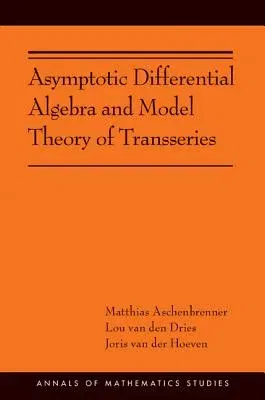Matthias Aschenbrenner
(Author)Asymptotic Differential Algebra and Model Theory of Transseries: (Ams-195)Paperback, 6 June 2017

Qty
1
Turbo
Ships in 2 - 3 days
Only 5 left
Free Delivery
Cash on Delivery
15 Days
Free Returns
Secure Checkout

Part of Series
Annals of Mathematics Studies
Part of Series
Annals of Mathematics Studies (Paperback)
Part of Series
Annals of Mathematics Studies, 195
Print Length
880 pages
Language
English
Publisher
Princeton University Press
Date Published
6 Jun 2017
ISBN-10
0691175438
ISBN-13
9780691175430
Description
Product Details
Book Format:
Paperback
Country of Origin:
US
Date Published:
6 June 2017
Dimensions:
23.37 x
15.24 x
4.57 cm
ISBN-10:
0691175438
ISBN-13:
9780691175430
Language:
English
Location:
Princeton
Pages:
880
Publisher:
Series:
Weight:
1238.31 gm